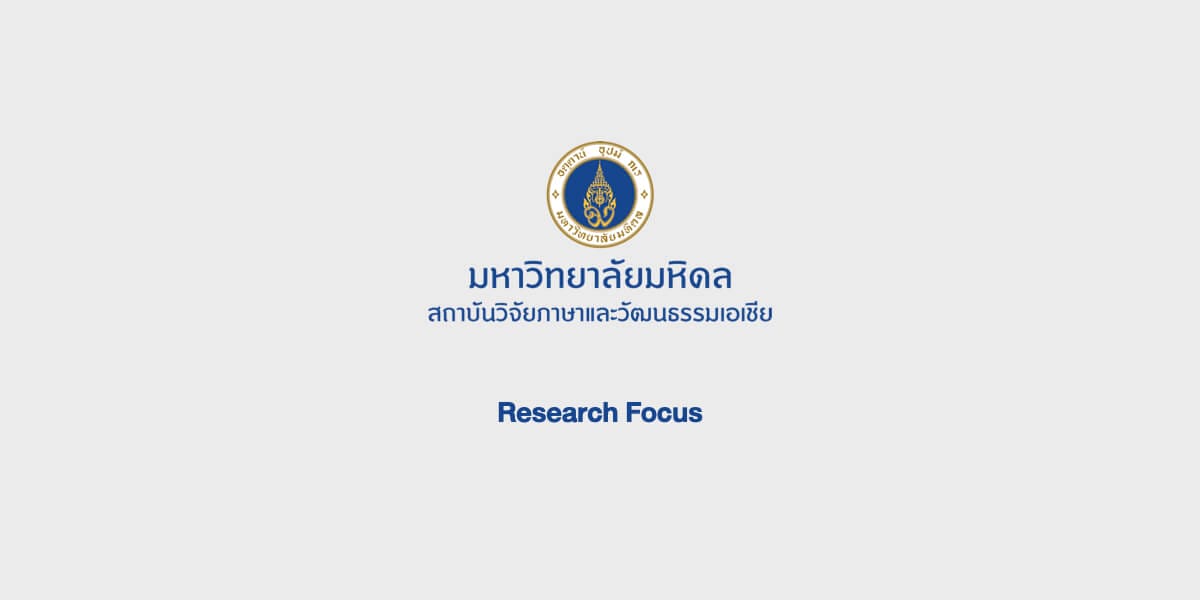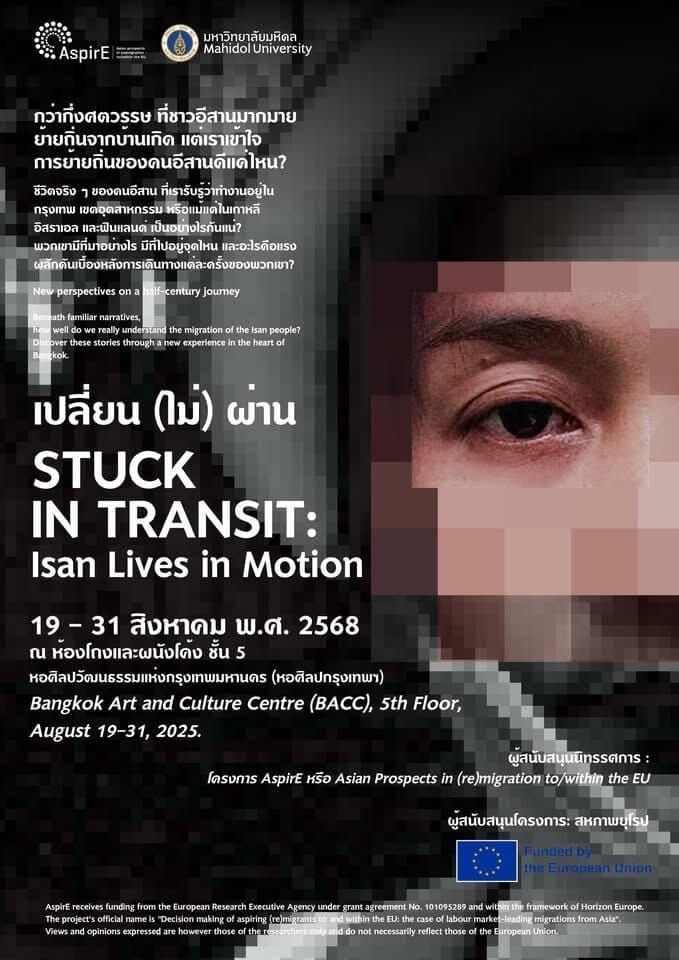
Decision Making Of Aspiring (Re)Migrants To/Within The Eu: The Case Of Labour Market-Leading Migrations From Asia (Aspire)
หัวหน้าโครงการ:
นักวิจัย:
- Asuncion Fresnoza-Flot Université libre de Bruxelles (Coordinator) Belgium
- Adéla Souralová Masaryk University Czech Republic
- Ruth Achenbach Goethe University Frankfurt Germany
- Paola Bonizzoni University of Milan Italy
- Sofia Gaspar Iscte – University Institute of Lisbon Portugal
- Mari Korpela Tampere University Finland
- Maruja Asis Scalibrini Migration Center Philippines
- Sirijit Sunanta Mahidol University Thailand
- Dang Nguyen Anh Vietnam Academy of Social Sciences Vietnam
- Hathairat Phaholtap Foundation for Isaan Education and Popular Media Thailand
- Le Kim Sa Asia-Pacific Center Vietnam
- Isabella Ng Fung-Sheung The Education University of Hong Kong China
- Gracia Liu-Farrer Waseda University Japan”
ระยะเวลาดำเนินการ:
ที่มาและความสำคัญ
AspirE – Asian prospects in (re)migration to/within the EU – is a 3-year research project (2023-2025) that examines the decision making of aspiring (re)migrants from selected Southeast and East Asian countries (China, Japan, Philippines, Thailand, and Vietnam) to and within selected EU member countries (Belgium, the Czech Republic, Finland, Germany, Italy, and Portugal).
This project addresses the following questions:
1. How do migration regimes in the countries of origin and destination consider (aspiring) (re)migrants’ behaviour in their policies?
2. Why do people decide to (re)migrate or to stay?
3. When do individuals’ migration decisions evolve?
Methodology
Pursuing its epistemological stance with interdisciplinary, multi-level, and multidimensional aspects, AspirE adopts a qualitative methodological approach with a participatory dimension to study (non-) migration decision-making. This approach highlights the human aspects of decision-making, an innovation that is present in AspirE’s mode of inquiry, model of analysis, data-gathering methods, and work programme.
– Mode of inquiry: case study of labour market-leading migrations from Asia
– Model of analysis: humanising framework through engendering, decolonizing, and situating contextually the analysis
– Data-gathering methods: policy content analysis, semi-structured interviews (separately with experts and aspiring (re)migrants), social-network mapping, video diary, and focus group discussions
– Work programme: 8 Work Packages (WPs) with 1 ethics WP, 3 empirical research WPs, 2 management WPs, 1 training WP, and 1 impact WP”
วัตถุประสงค์
The objectives of the project are as follows:
- Map to what extent spatial mobility policies consider aspiring (re)migrants’ behaviour
- Identify the micro- and meso-level drivers of mobility aspiration and/or intention
- Determine the temporality of (non-)mobility decision-making


